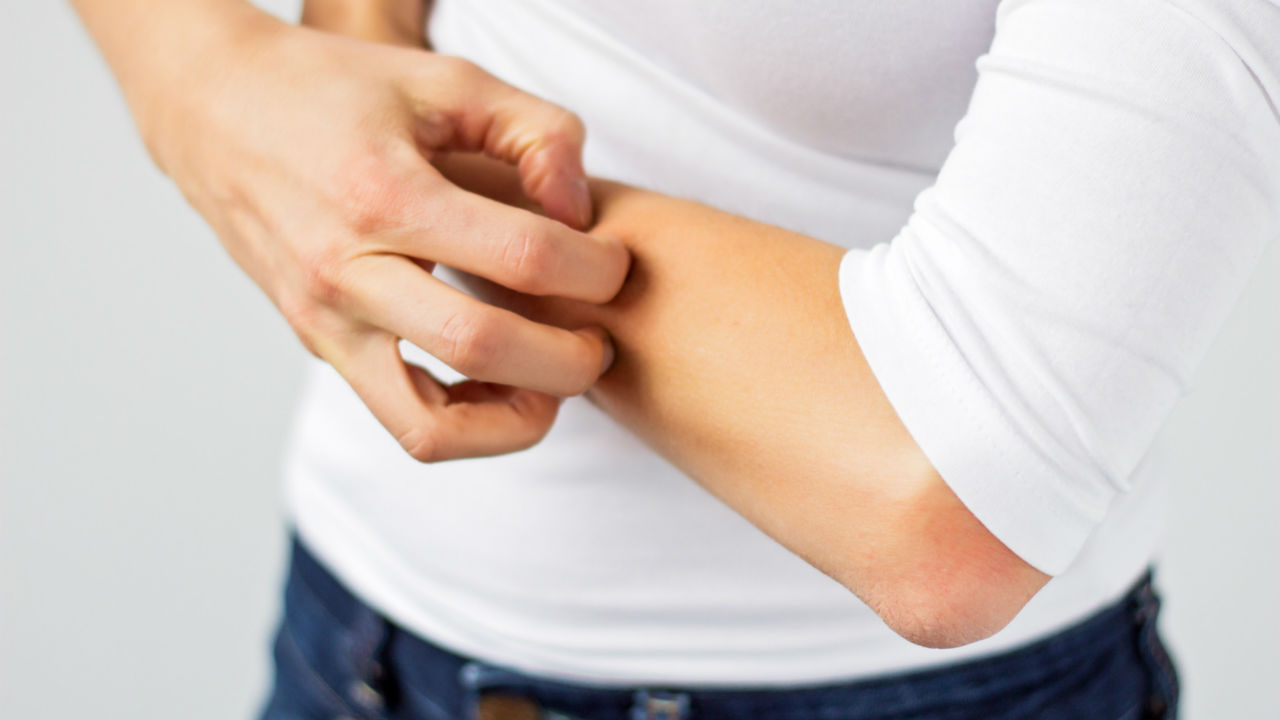 Kaspars Grinvalds/fotolia
Kaspars Grinvalds/fotolia
Sponsored by: Bio-Oil®
If you've ever suffered from dry, itchy, scaly skin, you know all too well the importance of keeping your skin hydrated, both from within and without. The higher the water content of your skin, the more flexible and soft it will be. Low humidity, for instance in winter, can leave skin dry and chapped.
Moisture From Within
Your skin's oil glands, also called sebaceous glands, are found in the dermis, which lies between your hypodermis (deepest layer of skin) and your epidermis (outer layer of skin). Oil from your sebaceous glands helps to create a barrier between your skin and the elements of the environment.
Sebum is an oily substance that lubricates your skin. But when you have an overabundance of it, a soft plug of sebum and dead skin cells can accumulate in your hair follicles and bacteria can form, causing infection and inflammation.
Sebum production increases during puberty when oil glands become enlarged due to hormonal changes. This can cause skin problems, such as acne during adolescence.
Sebum production will rise as hormone levels fluctuate throughout a woman's lifetime. For instance, when a woman is pregnant or using oral contraceptives, sebum production may alter.
As an adult woman ages, production of the oil will eventually decrease. Beyond changes in sebum production, medical conditions and living in a harsh climate can also take a toll on a woman's skin.
Hormonal Changes in 20s, 30s and Beyond
You'd be surprised at how much begins to change after women are past their twenties. It may sound backward, but due to hormonal changes, some women may actually see more blackheads and acne outbreaks when they are older than age 30. Oil production increases around that time, often leading to clogged pores and inflammation.
Hormonal changes from pregnancy or from using birth control pills can lead to brown patches on the face, which used to be called the mask of pregnancy.
As women age, thyroid function may slow down, and this affects hormone production of all kinds. Both pregnancy and the postpartum period can lead to hypothyroidism, which can cause dry, scaly skin.
The skin can become sensitive as well as thinner, and therefore more prone to wrinkles, from hormonal changes.
Moisture From Without
One way of protecting the skin from moisture loss is by applying creams or lotions. These products create a barrier that seals the moisture in, keeping skin hydrated.
Before choosing a product, it's important to know what ingredients are actually going on your skin. Do your products have more synthetic or natural ingredients? Check out your skin care product labels to see what the healthiest option for you is.
How Bio-Oil® Can Help
Bio-Oil® provides natural oils to prevent dry skin, as well as promote healing and diminish the appearance of scars, stretch marks and uneven skin tone. It combines calendula, chamomile, lavender, rosemary and PurCellin™ oils, along with vitamins A and E.
Calendula oil soothes damaged, sensitive and sunburned skin cells. It reduces and treats inflammation, minor skin infections, rashes and irritation.
Chamomile oil benefits sensitive skin, decreasing inflammation.
Lavender oil helps calm and soothe sensitive skin.
Rosemary oil is a mild antiseptic, which refreshes and conditions the skin.
PurCellin Oil™ is derived from the oil glands of ducks, and used to soften and soothe skin.
Vitamin A increases the elasticity, texture and tone of the skin while it creates new collagen. Vitamin E protects against skin damage from free radicals and premature aging. It increases moisture in the epidermis, making the skin smoother and softer overall.
Bio-Oil® can be used safely by every skin type. To learn more, visit: http://bio-oilusa.com/en-us/.
Sources:
Acne
http://www.mayoclinic.org/diseases-conditions/acne/basics/causes/con-20020580
Dry Skin
http://www.americanskin.org/resource/dryskin.php
Skin & Body
http://www.webmd.com/beauty/skin/is-your-skin-hormonal
Skin structure and function
http://www.abpischools.org.uk/page/modules/skin/skin3.cfm?coSiteNavigation_allTopic=1
BIO-OIL INGREDIENTS
http://www.biooilhealth.com/ingredients






Add a CommentComments
There are no comments yet. Be the first one and get the conversation started!